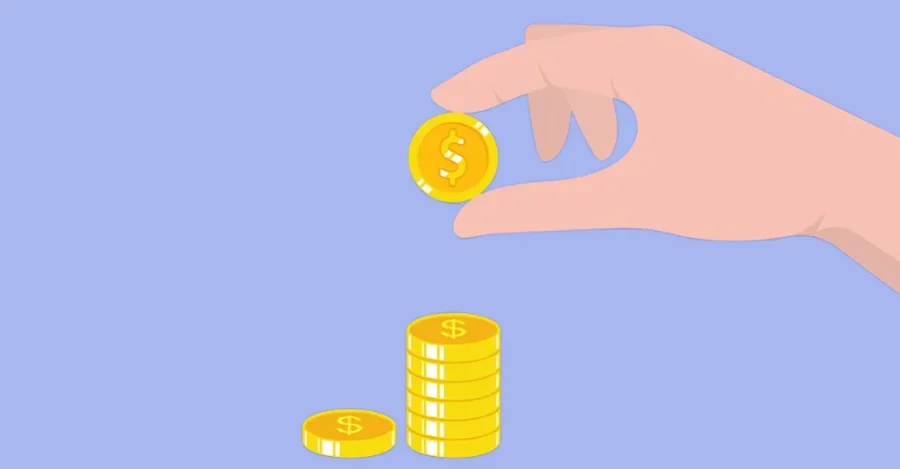Around the world, many people struggle to save money due to having a low income. In fact, the World Bank says a large number of people live on less than $6.85 a day. The reason is simple: millions of people are working hard just to get basic needs, and nothing is left to save.
Yet saving on a low income is still possible. You need a strong savings plan with consistent efforts.
What You’ll Learn
ToggleCan You Save on a Low Income
Many people believe they can’t save money because they don’t earn enough. Look, that is not the truth, it is the common excuse to run away for not doing savings.
In this world, most people do not know how to save money. They follow the advice of someone without knowing that his financial life is different. Simply, you only need as little as a penny to save, not the whole dollar.
You remember the childhood piggy bank, where you’d put in some extra bucks and a check after a year?
Everyone was shocked – similarly, savings work; you only need some bucks every day to save money.
When you build a savings habit, even on a tight budget, it leads to a bright future.
Recommended: How to Start a Budget from Scratch
Strategies to Save Money Fast
Money saving is necessary for low-income earners. Because of Emergencies, they knock on the door anytime. Here are the simple strategies to save money fast on a low-income source:
1. Assess The Financial Situation
Saving money fast on a low income is not as hard. First of all, you need to know where you stand – I mean, what is your financial situation?
Then track your earnings along with spending. Sometimes you know the income but forget to sum up the expenses like the daily coffee bill, laundry, transportation, etc.
These little daily expenditures create a big impact at the end of the month.
After knowing income and expenses, it is time to create a simple budget that helps you to identify areas – utilities, groceries, entertainment, transportation – where you can save more.
If you don’t know, use simple budgeting tools or applications.
2. Create a Realistic Budget
Create a budget that aligns with your finances. Start with a simple monthly budget, the 50/30/20 rule, and a zero-based budget.
The budget must have three categories: income, expenses, and savings. And expenses are categorized into Rent/Mortgage, Utilities, Groceries, and Others.
If you’re not sure, try spreadsheets, which allow you to customize easily.
Prioritize your needs and give pause to wants. Needs are compulsory expenditures like rent, gas, electricity, and groceries. But wants not compulsory expenditures like gym (instead try home workout), entertainment, dining out, and shopping.
3. Cut Unnecessary Expenses
Unnecessary expenses are different for everyone. Before you reduce, make sure which ones are unnecessary or not.
Daily coffee shop visits, frequent dining out, subscriptions, buying the latest tech gadgets, and Excessive fashion shopping. These are common unnecessary expenses.
You can easily reduce these spending to save more.
4. Save on Groceries and Essentials
Saving money on groceries and essentials is easy without any sacrifice. Trust me, you only need a proper weekly meal plan and shopping lists that help you to avoid impulse buying.
When you buy food and groceries in bulk for a week, there are many store that offers discounts on bulk buying.
If you are a regular customer, then join their loyalty programs that offer sales and discounts.
You can save money by choosing a generic item that has a lower price than an overhyped item.
5. Avoid High-Interest Debt
You know your financial situation, but the debt interest eats up your saved money. Right, you need to avoid high-interest debt, including credit cards.
Gradually reduce all debt payments, and focus on saving fast.
6. Find Additional Sources of Income
Sometimes, one income source is not enough to manage expenses, and nothing is left for savings.
So, find side jobs, whether it is freelancing, ridesharing, selling unused items, tutoring, pet sitting, or babysitting.
The additional income source helps you to save money fast.
If you are comfortable with writing or editing, try content writing or video editing.
7. Build an Emergency Fund
As you don’t know when emergencies knock on the door. So, saving money is the best preparation for emergencies, whether in the form of an emergency fund or future savings.
Start saving in small amounts, then gradually increase it.
Use an emergency savings account like a high-yield savings account that offers interest.

Common Savings Mistakes to Avoid
When you are fully prepared to save money, but forget that savings mistakes can wipe it out. So, here are common mistakes to avoid:
1. Ignoring A Budget
Creating a budget is necessary for low-income individuals to save money fast.
A budget can help you see where your money goes and when you cut back to save more.
But the common mistake is that you avoid it and spend blindly.
2. Underestimating Small Expenses
This is too common when individuals ignore small expenses. These small expenses have a big impact over time.
If you save fast on a low income, then you have a record of every penny.
3. Trying to Save Too Much Too Fast
This mistake is very common during saving money, whether it is for low-income earners or normal earners.
They all try to save too much, but very fast. Look, have you eaten one month’s food in one time? No, right, then why are you trying to save money too fast?
With patience, you need to save small amounts. Trust me, over time, it will increase fast.
4. Not Preparing for Emergencies
An emergency fund is a part of savings. If you do not create an emergency fund, that forced to buy high-interest debts.
Making this mistake has become a burden.
Conclusion
Saving money is not as hard as you read. My income is low; this is a common excuse to step out of saving. First of all, change your mindset and find where you stand financially. How much do you save? Is it one dollar, or as much as you wish? Then follow money-saving strategies. Don’t ignore savings mistakes that most people do.
Share your thoughts in the comments. Remember, with consistency or patience, you build a big savings.
